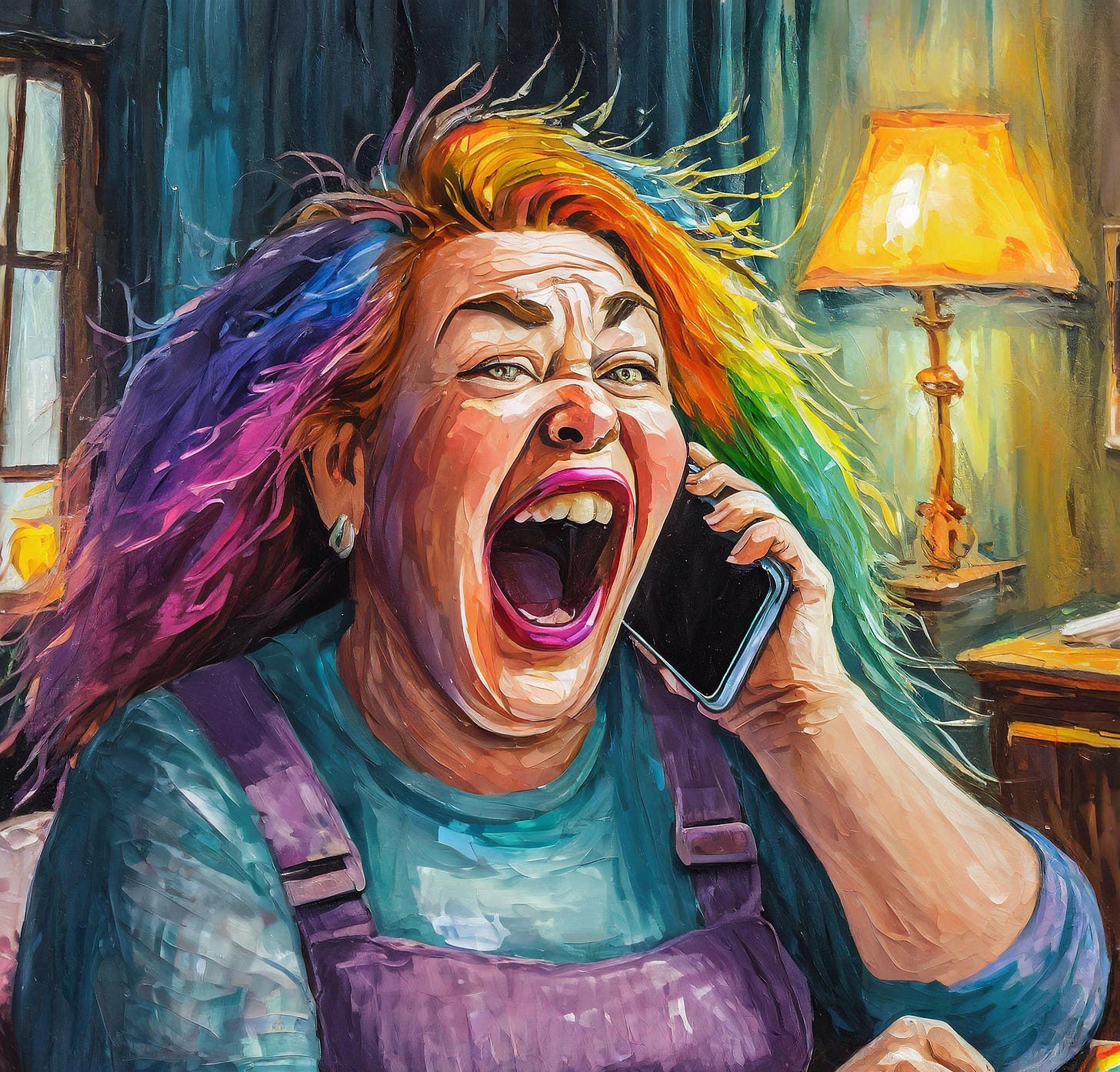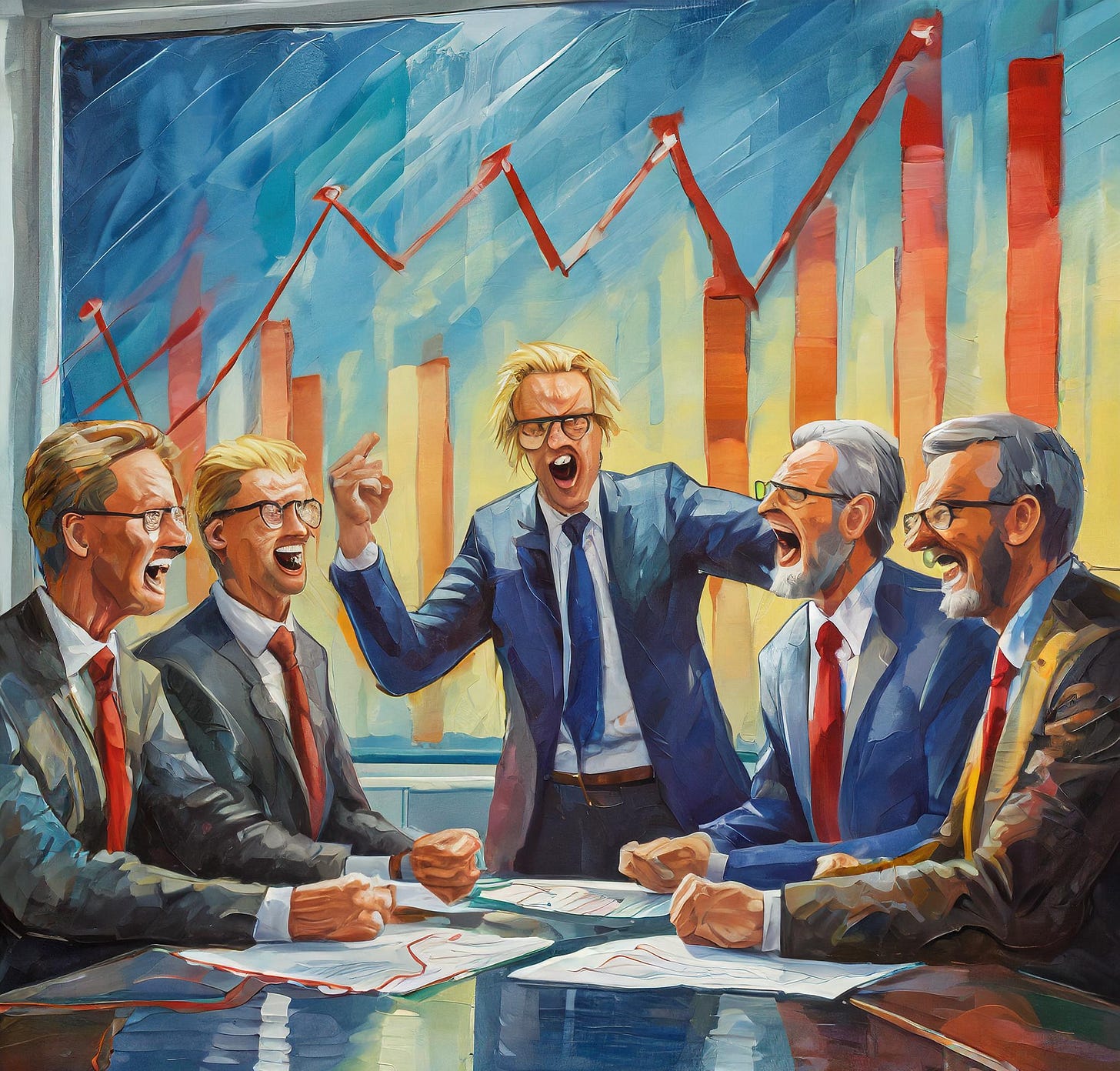Cancel Culture VS Boycott.
The difference between a small loud extremist group and a quiet majority.
It’s impossible to deny that there exists a cold, quiet culture war going on in the West. In the left corner is a small, heavy-handed, moral supremacist, ethno-socialist elite. In the right corner is a quiet, ideologically diverse, classically liberal mountain of regular people. We’re broadly aware that those on the left are the arbiters of social acceptance, political correctness, and ideological supremacy. To question them, or their supreme ideology, is to question the very nature of goodness and decency. To defy them is to invite “genocide”, “slavery”, “torture”, “violence”, “abuse”, according to those leftist political activist groups.
Whereas the cancel culture certainly comes from a small and extreme minority of leftist individuals and groups, the boycott crowd is a much larger group. Boycotters are also often incorrectly labelled as “right wing”, when in reality they tend to just be people who are best described as “not ethno-socialist”. The concepts of re-introducing racial hiring practices and ethnicity quotas or exposing children to bizarre and extreme sexual ideologies are not exclusively right-wing. It’s also difficult to continue being a customer of a product or service that labels your very identity as problematic in some way. This extremism disgusts and offends most of the moderate and center-left, including classical liberals. Cancel Culture on Wikipedia is incorrectly labelled “a personal decision, sometimes seriously and sometimes in jest, to stop supporting a person or work”. The reality is that a cancellation occurs when a small and very vocal minority of people who may not even be customers attempt to publicly shame and humiliate a person or company into changing their offering or retreating from public view altogether.
The biggest front for this war is in our economy. The fight is prominent in both the media we consume and the products on offer. Everything from Disney to Bud Light to Twitter is in the air. The targets are often different; whereas a loud little extremist group can humiliate an individual, they often have more difficulty with bigger businesses. Boycotts, on the other hand, as we will see below, can and will level gigantic corporations. Cancellers cannot hope to match the kind of financial power that a quiet majority has, especially considering the cancelers are often socialists and the quiet majority sits to the right of the extreme left wing.
Cancellations.
As offence activists became louder and louder through the use of Twitter and social media, their targets were primarily individuals. Humiliating and smearing an individual is a much easier prospect, as you can terrify all businesses from doing any business with them. You can also terrify the risk-averse venues from accepting people who become the targets of these psychotic leftists for whatever woke crime they commit. I want to discuss a couple of the most infamous cancellations and the most famous boycotts in recent times and highlight some of the similarities.
J.K. Rowling: The T.E.R.F.
The Harry Potter author has been the centre of a long-running political conflict between different groups within the extreme leftist sphere. Ethno-socialists use the term “terf” to describe a feminist who doesn’t see male-to-female transsexual individuals as outright women. It means “Trans-Exclusionary Radical Feminist”. It’s quite a terminology from the politically radical leftists, and it’s used as a word to describe feminists who weren’t quite extreme enough in their gender ideology. There’s a reason that JK Rowling doesn’t just get the usual “-ist” or “-phobe” for these views. It’s because she’d spent most of her post-magic career flirting with extremist identity politics, sitting in bed with the very people that now seek to eject her from the very fantasy world that she’d created. The moment she lagged behind the extremity wave, she was engulfed in a deep and targeted hatred that has successfully had her ejected from nearly all walks of life. Because she’d been in with the extremist crowd and then suddenly out, she was seen as worse than a political opponent; she was a betrayer.
JK Rowling has been ejected, removed, and cancelled from a wide variety of public appearances and associations in the last half decade. Even the actors who were made rich and famous by her work have spoken out against her. In a truly shameful display of bending the knee to extremist ideology, all three of them have publicly decried J.K. Rowling’s relatively benign and reasonable views on what a woman is. The only person in the film series that came to her defence was the wonderful and warm Robbie Coltrane, who played Hagrid, stating the obvious: “I don’t think what she said was offensive, really. I don’t know why, but there’s a whole Twitter generation of people who hang around waiting to be offended.” In that, he nailed it; it wasn’t that offensive, and yes, there are people who spend too much time on the internet, trying their best to be offended.
Graham Linehan: Comedy to Tragedy.
One of Britain’s most beloved, historied, and successful comedy writers also has one of the saddest and most brutal cut-downs by cancel culture to date. Like Rowling, Linehan has also been someone who has spent some time flirting with the extreme identitarian left in the past and even participated in publicly attempting to cancel or shame some individuals. But, like Rowling again, he did not keep up with the race to the bottom of identity politics and was left behind. His more politically extreme fans turned on him, and he became a victim himself. Linehan lost everything—his work, his welcome, even his family. Linehan expressed the kind of reasonable views and beliefs shared by most people in the country, and his work has never been offensive or even that fringe in the past; it’s not like he’s mired in controversy.
Linehan’s work, “post-cancellation” has been extremely important, and he remains very much on the front lines, combating many of the ills of extreme left politics. He’s exposed many of the dangers of transsexual ideology to a wide and receptive audience. Linehan exposed the dangers of growth-stunting drugs called puberty blockers and that transsexual surgeries were being used by deeply homophobic parents to convert their children into the “correct gender” for their sexuality. Linehan has given platform to many of the transsexual surgery victims, some of them being de-transitioners, where they revealed to the world some of the extremely upsetting and rarely discussed permanent genital damage done to them by these unnecessary surgeries. He broadcast the news that Mermaids, a deeply paedophilic “charity” organisation, was illegally sending chest ironing binders to little girls around the country. This is a practice that many actual charities fight against across Africa. None of these issues are really that offensive to anyone, but a small and vocal minority has kept Linehan on the fringes of society while terrifying anyone and everyone from siding with or seeming to side with him.
Boycotts.
As corporations become more and more extreme in their identity politics, they become more and more at odds with the regular sensibilities of good people up and down their respective countries. There are now dozens of examples of large corporations exposing their ethno-socialist agendas and being humbled by the personal decisions of millions of people who simply decided to no longer financially support such extremism. It feels like a David vs. Goliath story: the small and stoic people taking on the heavy-handed and ideologically entrenched establishment and winning. The truth is, that little David represents a mountain of people who don’t tweet, don’t post opinions, and don’t discuss things online but rather get on with their own lives, and they are the outright majority. It’s now known as “Go Woke, Go Broke”, and it seems to be true. Following the cancellations, I will discuss some of the biggest boycotts of our age and look at some of the patterns that emerge.
Disney: 52.9% stock crash since March 2021.
What do you get when you mix identity politics and sexual ideologies with children’s entertainment? The answer to this question might be the overwhelming economic and social backlash against Disney. For some reason, the company leadership has decided to dive headfirst into radical identity politics and has even become strongly partisan of the new fad of leftist politics in the US. Their new political beliefs have also bled into their movies. There is a fair perception that a number of their most recent movies have included themes that regular people can’t really switch on to. Between March 2021 and today (December 2023), Disney has experienced one of the most enormous collapses in share price it has ever experienced. Although a lot of this could be attributed to some of the general economic woes, there’s no doubt that their radical partisanship has been a big part of it. Disney’s stock value rides high on the love and adoration from families the world over; the moment they started obsessing with sexual perversions and strayed away from storylines and character arcs that people could relate to, the interest died almost instantly.
Bud Light: from the single most popular beer in America to the most vilified.
This has been one of the world’s most famous boycotts in recent history. You’ve likely been exposed to the news on this many times, but it’s the single most famous example out there. Bud Light, in their new, woke marketing genius, decided to try to appeal to lord knows who by buying a promotional video from Dylan Mulvaney, a tiny effeminate man who claims to be a "girl." Now, Bud Light had a reputation as being a beer that was consumed almost exclusively by frat boys, rednecks, sports fans, and the like. It’s brand captured a youthfully masculine, unashamedly brash, often offensive type of character. With this information to hand, you might quickly notice that marketing Bud Light through Dylan Mulvaney was like marketing Judaism to Palestinians or meat to vegans. It was such an enormous faux-pas that it actually offended the essentially unoffendable. It takes an enormously socially blind and unwise individual to think that any of these propositions are wise, and yet, here we are.
Target: share price is down 33% since the boycott began.
When Target began placing products featuring radical sexual lifestyles in children’s aisles, parents up and down the country decided they would shop elsewhere. Target executives tried to spin this in many different ways for the NYSE and investors in general, blaming weakened consumer demand and interest rates. In many stock-related articles on mainstream financial channels, there isn’t even a mention of the boycott. So why, then, were other competitors such as Wal-Mart going completely unaffected and, in fact, climbing to new heights? It’s because the boycott was extremely fast and widespread and is the main contributing factor to Target’s recent colossal share drop. It might be unfair to attribute a lot of Target’s recent failures to just this boycott, as Target has been losing a lot of value since 2022. However, there's been a very clear and drastic additional drop since May 2023, when the boycott started. It seems like foisting sex politics onto children has not gone down well with the regular families that just want to get groceries and clothes for their children at a good price.
Victoria’s Secret: share price down 60% since they went “woke”.
Victoria’s Secret began to get diverse in 2021, abandoning more and more of the “sexy” in their brand, including removing their trademark model line, the “Angels”. Instead of marketing everything a woman might have wanted to see and feel like in terms of “sexiness”, Victoria’s Secret began to try reflecting what most people actually looked like. It seems almost cynical; the models went from stunning to obese, and this was supposed to be a part of a marketing message that showed “real women”. Not surprisingly, and as absolutely anyone could have predicted, their share price utterly collapsed as people stopped buying their products.
There has been a recent shift here; VS executives, including CEO Martin Waters, have begun finding their roots again, returning to images and concepts of sexiness. The irony is, there’s definitely plenty of room for fat models in marketing, and it can even be its own little feel-good moment, but abandoning all attempts at marketing the image of sexiness for a lingerie brand was a disaster from the start and a peculiar choice to begin with.
Gillette: $8 billion in revenue for Gillette after portraying men as rapists.
Gillette was one of the original sinners in the department of identity politics. Much like Bud Light, it used “social awareness” campaigns to promote their products. The foundation of their message was that “men” as an identity were problematic and that their very nature made them responsible for most of the suffering and cruelty that exists in the world. The Gillette management doubled down, producing an ad featuring a woman who had taken so many hormonal drugs that she’d begun to develop some facial hair. This video was portrayed as a tasteful piece of marketing aimed at something that men who shave can identify with, but truth be told, most people saw a sad individual struggling with her own relationship with her own body, filled with drugs and delusion, pretending to be a man. People inherently know that women are precious, as is femininity, and it seems like people mostly agree. P&G tried their best to spin the marketing disaster to their investors, but any and all potential other issues will have been exacerbated by this miserable media that they’d produced for Gillette.
Hershey’s: 33% stock price drop since featuring a male to female transsexual individual as a feature in their International Women’s Day marketing.
This is another, much quieter but just as impactful Bud Light moment. Hershey’s featured five women in their marketing for International Women’s Day. In the name of inclusivity, they excluded a woman from one of the IWD spots and instead replaced her with a male. People who just wanted chocolate and not a political lecture on sex changes seem to have just made a personal decision to choose other chocolate products over Hershey’s. Again, like Bud Light, the industry has many competitors who focus more on providing great chocolate and less on offensive politics, meaning they’re more likely to acquire and retain customers in the long term.
You have to take a step back from this and wonder why a chocolate manufacturer is endorsing this new gender cult so wholeheartedly. Like the meme, they’ve got one job: make good chocolate. Part of that means using marketing that makes people feel good and warm and associates positive imagery with enjoying their chocolate. This is the “go woke” part of going broke; a corporation filled with young, naïve, culturally and politically lost graduates is taking away focus from the business and jumping headfirst into an eccentric belief system. The results are as you’d expect; people don’t really associate positive feelings with the brand anymore.
You can ignore cancellations. You can’t ignore boycotts.
When an enormous percentage of your customer base decides to take their money elsewhere, it is impossible to ignore. Businesses survive off of the goodwill of their customers; betray their trust, and you lose your business. In the midst of corporate America, there rages a very quiet civil war over the values of extreme left politics at the heart of decision-making. Does DEI, ESG, and all these three-letter curses help or hinder their business? Through the fog of long-winded, foggy, leftist explanations for these bizarre ideologies, there must be some very basic questions being asked at every level. When corporate overlords announce to the world that they’re re-introducing racist hiring practices, do they really believe that their customers are overjoyed? When Boeing says that their main focus in engineering recruitment is that the engineers have non-European ethnicities, as opposed to merit, do you feel safer on a plane? When Victoria’s Secret decides to market their lingerie with fat and ugly (sorry) women, are customers supposed to dream of looking like them? When the children's content that props up your business empire suddenly and randomly starts focusing on perverted sexual themes, do you imagine parents are rushing their kids to the theatre or your theme parks? As easy as those questions are to answer, when you’re deep in the corporation, there are leftist werewolves that will come after you in a coordinated manner with the intent of silencing you.
One of the great distinctions between the extreme left and everyone else is that the extreme left support base doesn’t really have any money. Many are even out-and-out socialists and communists, almost morally committed to staying poor. These aren’t people investing in the economy, providing value to the marketplace, taking capitalist risks, hiring people, innovating, building, taking credit, or anything that is particularly useful to anyone else. The extremist left spends their lives in delusions of grandeur, believing that through street protesting and changing their profile pictures on Instagram, they can have these enormous impacts on the world for good, all the while relying on other people to fund their lives through welfare.
In the most recent wake of Boeing’s repeated air disasters and their immense focus on racist hiring practices, the quiet civil war of DEI/ESG versus good business practice will reach the front pages again, and it will not go away. These bizarre ideologies will make plenty of headlines in years to come—good business, at least, for a newspaper.






